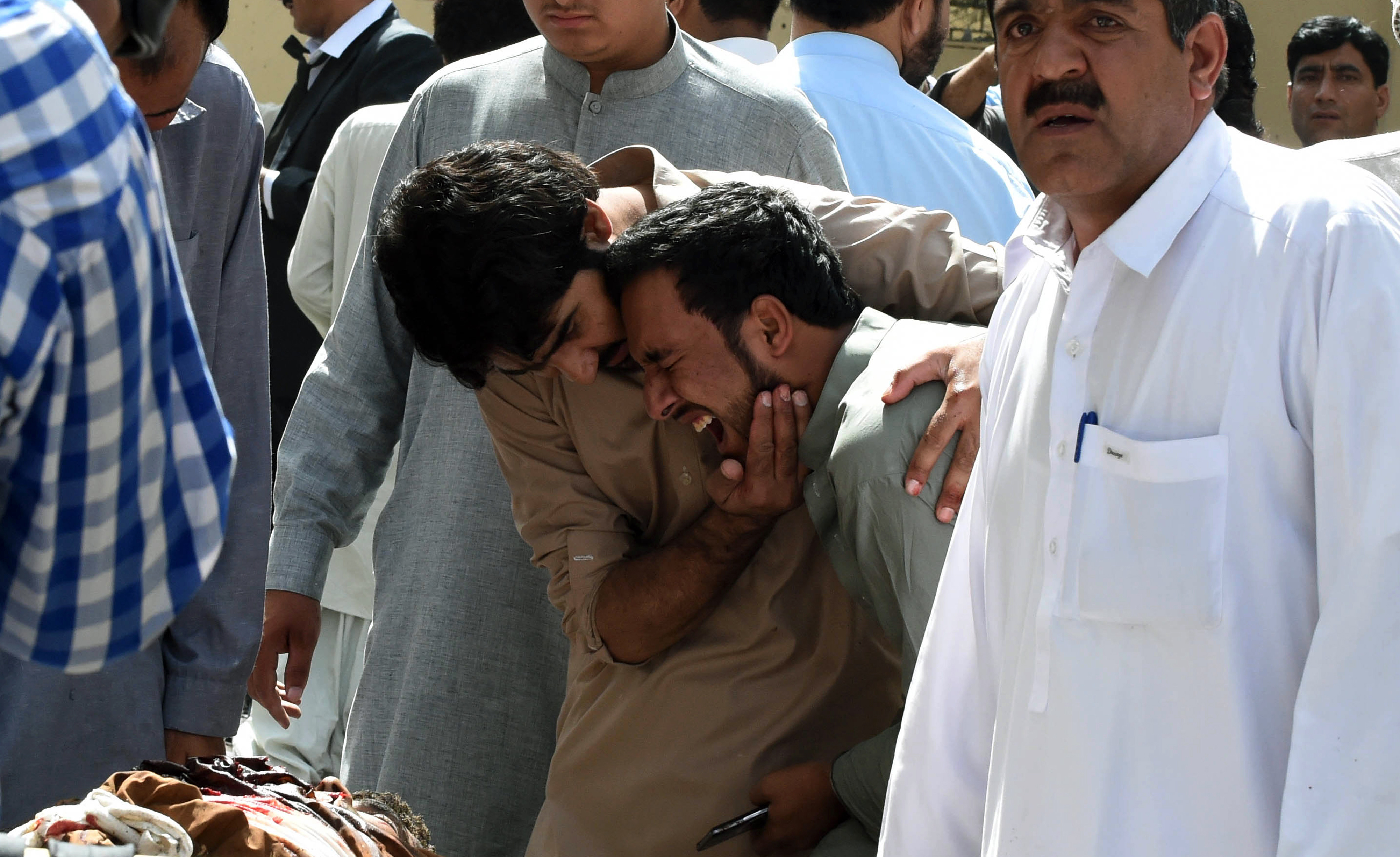
At least 35 people were killed and dozens more wounded after a blast at a major hospital in the Pakistani city of Quetta, an AFP reporter and officials said, with fears the toll could rise. / AFP PHOTO /
QUETTA, Pakistan (AFP) — At least 40 people were killed and dozens wounded when a bomb ripped through a crowd of mourners Monday at a hospital in southwest Pakistan, officials said, with fears the toll will rise.
The blast in the Balochistan provincial capital Quetta came after mourners including journalists and lawyers had gathered at the hospital following the fatal shooting of a senior local lawyer.
Video footage showed bodies strewn on the ground, some still smoking, among pools of blood and shattered glass as shocked survivors cried and comforted one another.
Many of the dead appeared to be wearing black suits and ties. A large burn mark against white brick appeared to indicate where the bomb went off.
Officials were cautious about the death toll, saying mobile phone jammers had been activated around hospitals in the area so they were unable to contact officers on the ground.
“The last information we had was 40 dead but it may increase,” said Saleh Baloch, health minister for Balochistan, in a figure confirmed by an AFP reporter at the scene.
“There were around 40 people injured when we were shifting them to hospitals. But now mobile jammers have been activated and so we don’t have updated information,” he told AFP.
The military has also been deployed in and around the city’s hospitals, he said.
The toll makes the attack the second deadliest in Pakistan this year so far, after a bombing in a crowded park in Lahore over Easter killed 75.
Several lawyers and some journalists had gathered at the hospital after the death of the president of the Balochistan Bar Association in a shooting earlier Monday, Akbar Harifal, provincial home secretary, told AFP.
The lawyer, Bilal Anwar Kasi, was targeted by two unidentified gunmen as he left his home in the morning for work.
There was no immediate claim of responsibility for either the blast or the shooting. Facebook activated its safety check for Quetta in the wake of the attack.
Balochistan, which borders Iran and Afghanistan, has major oil and gas resources but is afflicted by Islamist militancy, sectarian violence between Sunni and Shiite Muslims and a separatist insurgency.
© 1994-2016 Agence France-Presse








